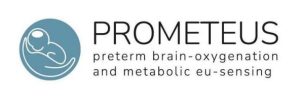
The MiceLab research group, led by Professor Josep Vehí, participates in the Prometeus project, financed with 4 million euros from the EU funds
The project will change the paradigm of preterm neonatal care and nutrition, through a Nutritional Clinical Advisor, who will guide the parenteral (intravenous) nutritional intake of preterm infants to meet the needs necessary to guarantee optimal levels of cerebral oxygenation.
The research group MiceLab – Modeling, Identification, and Control Engineering Laboratory of the Institute of Informatics and Applications of the University of Girona (UdG) participates in the PROMETEUS project – “Preterm Brain-Oxygenation and Metabolic EU-Sensing: Feed the Brain”, an international research that aims to revolutionize the care of prematurely born infants.
The number of premature babies overcoming the critical postpartum stage has steadily increased over the years thanks to improvements in neonatal intensive care, while the number of premature babies developing cognitive, sensory, or motor deficits during their lifetime has increased. The main cause of these deficits is due to their inability to manage the metabolic control of the nutrients necessary for brain development before birth. During pregnancy, fetuses are completely dependent on the mother for nutritional supplies. Babies born prematurely, some weighing only 600 grams, have a less developed metabolism than a full-term newborn leading to care that includes managing their nutrients intravenously.
Prometeus is a project aimed at introducing a new paradigm for personalized nutrition of prematurely born neonates in neonatal intensive care unit (NICU). It will develop a groundbreaking technology for real-time adjustment of glucose and nutrient intakes to target neonatal brain needs.
“The Prometeus project will lead to a significant reduction in the number of premature babies developing cognitive, motor, or sensory dèficits over the years. The Prometeus project will open the door to a new digital era of neonatal intensive care management” stated Dr. Sabrina Brigadoi, coordinator of the project. With Prometeus, we will reduce the number of former preterm children needing some sort of school support from ~125,000 to ~25,000 per year, thus reducing of a similar proportion prematurity related costs over a 5-year period, from 25,000,000€ per year in Europe to 5,000,000€.
This project will develop a metabolic model of the interaction between the three key brain fuels and their effect on cerebral blood flow, oxygenation and metabolism. The model will serve to individualize brain nutrition targeting “brain health” according to the inputs derived from two novel minimally invasive metabolic sensing systems: a wearable cap measuring cerebral blood flow, oxygenation and metabolism, and a subcutaneous miniaturized metabolic sensor for the three key brain fuels. Prometeus will be paralleled by a parent- dedicated interface, exploiting a purposely developed family adjusted visual language, that will inform parents of preterm babies during their NICU admission and stay.
Universitat de Girona will guide the implementation of the Nutritional Clinical Advisor, a control algorithm that will output the correct parenteral (intravenous) nutritional intakes for each preterm neonate to achieve optimal brain oxygenation.
The project will be led by the Universita Degli Studi Di Padova and counts with 10 other partners from the academic and industrial sectors: Politecnio Di Milano, PIONIRS and Dave Embedded Systems (Italy); Université Grenoble Alpes and Institut national de la santé et de la recherche médicale (France); QULAB Medical Ltd (Israel); University College Cork (Ireland); University College London (UK); and Universitat de Girona and Fundació Institut de Ciències Fotòniques (Catalonia).
This project is financed with approximately 4 million euros from the European Innovation Council (EIC). The EIC with its Pathfinder program, supports the exploration of bold ideas for radically new technologies. It welcomes the high-risk/high-gain and interdisciplinary cutting-edge science collaborations that underpin technological breakthroughs.
Check out the website to discover all about the project: Prometeus – Preterm Brain-Oxygenation and Metabolic Eu-Sensing (prometeus-eic.eu)
This project has received funding from the European Union’s Horizon Europe research and innovation program under grant agreement No101099093

